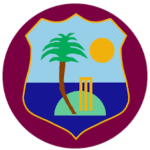Pakistan Historic country, Pakistan’s history is rich and complex. Shaped by a multitude of political, cultural, and social forces. From ancient civilizations to colonial rule and independence, the story of Pakistan is one of resilience, struggle, and perseverance. In this comprehensive overview. We will delve into the key events and milestones that have shaped the history of Pakistan. From its earliest beginnings to the present day.

1. Ancient Civilizations and Early Settlements:
The region that is now Pakistan has been inhabited for thousands of years. But With evidence of ancient civilizations dating back to the Bronze Age. About 2500 BCE, the Indus Valley Civilization, one of the first urban societies in history. But existed in modern-day Pakistan. Known for its advanced urban planning, sophisticated drainage systems, and intricate pottery, the Indus Valley Civilization was a hub of trade and cultural exchange.

2. Islamic Conquest and Rule Pakistan Historic country:
In the 7th century CE, Islam spread to the Indian subcontinent with the arrival of Arab traders and missionaries. The region that is now Pakistan came under Muslim rule with the conquests of Muhammad bin Qasim in the early 8th century. Over the centuries, various Muslim dynasties, including the Ghaznavids, Ghurids, and Mughals, ruled over the region, leaving a lasting impact on its culture, architecture, and society.

3. British Colonialism and the Partition of India:
In the 18th and 19th centuries, the Indian subcontinent came under British colonial rule, known as the British Raj. The struggle for independence from British rule gained momentum in the early 20th century, led by figures such as Mohandas Gandhi and Muhammad Ali Jinnah. In 1947, But India gained independence from British rule, and the Indian subcontinent was partitioned into two separate dominions: India and Pakistan.

4. Birth of Pakistan Pakistan Historic country:
The partition of India led to the creation of two independent nations: India, with a Hindu majority, and Pakistan, with a Muslim majority. Pakistan comprised two geographically and culturally distinct regions: But West Pakistan (present-day Pakistan) and East Pakistan (present-day Bangladesh). But Muhammad Ali Jinnah, known as the “Father of the Nation,” became Pakistan’s first Governor-General.

5. Early Years and Political Turmoil:
Pakistan faced numerous challenges in its early years, including the mass migration of refugees, economic instability, and political turmoil. But The country adopted a parliamentary system of government, with the Muslim League emerging as the dominant political party. However, internal conflicts and power struggles plagued the fledgling nation, leading to periods of martial law and military rule.

6. Pakistan Historic country Indo-Pak Wars and Conflict:
Tensions between India and Pakistan erupted into full-scale wars in 1947–1948, 1965, and 1971. But The 1971 war resulted in the secession of East Pakistan, which declared independence as Bangladesh. But The conflict over the region of Kashmir has remained a flashpoint between India and Pakistan, leading to ongoing territorial disputes and occasional border skirmishes.

7. Economic Development and Challenges:
Despite its challenges, Pakistan experienced periods of economic growth and development, particularly in the 1960s and 1980s. But The country invested in infrastructure, industry, and agriculture, becoming known as one of the fastest-growing economies in Asia. However, economic disparities, corruption, and political instability hindered sustained progress and prosperity.

8. Military Rule and Democratisation:
Pakistan has experienced several periods of military rule interspersed with brief periods of civilian government. But Military coups in 1958, 1977, and 1999 brought military leaders to power, leading to periods of authoritarian rule and suppression of political dissent. However, Pakistan has also witnessed movements for democracy and civil liberties, with the restoration of civilian rule in 2008 following nationwide protests and elections Pakistan Historic country.

9. The War on Terror and Regional Instability:
But In the wake of the September 11, 2001, attacks, Pakistan emerged as a key ally in the United States-led War on Terror. But The country became a frontline state in the fight against militant groups operating along its border with Afghanistan. Pakistan Historic country. However, Pakistan also faced internal challenges from militant groups, leading to widespread violence, instability, and loss of life Pakistan Historic country.

10. Current Challenges and Opportunities:
Today, Pakistan continues to grapple with a range of challenges, including political instability, economic inequality, terrorism, and sectarian violence. However, the country also boasts a young and dynamic population, a vibrant cultural heritage, and growing potential in sectors such as technology, entrepreneurship, and renewable energy. But Pakistan Historic country, With ongoing efforts towards democratic governance, economic reform, and social development, Pakistan remains poised to overcome its challenges and realise its full potential as a vibrant and prosperous nation.

Pakistan’s history is a tapestry of resilience, diversity, and transformation. From its ancient civilizations to its struggle for independence and subsequent development as a sovereign nation, Pakistan’s journey reflects the trials and triumphs of a nation striving to carve out its place in the world. As Pakistan continues to navigate its path forward, Pakistan Historic country its rich history and vibrant culture serve as a source of inspiration and strength for its people.










